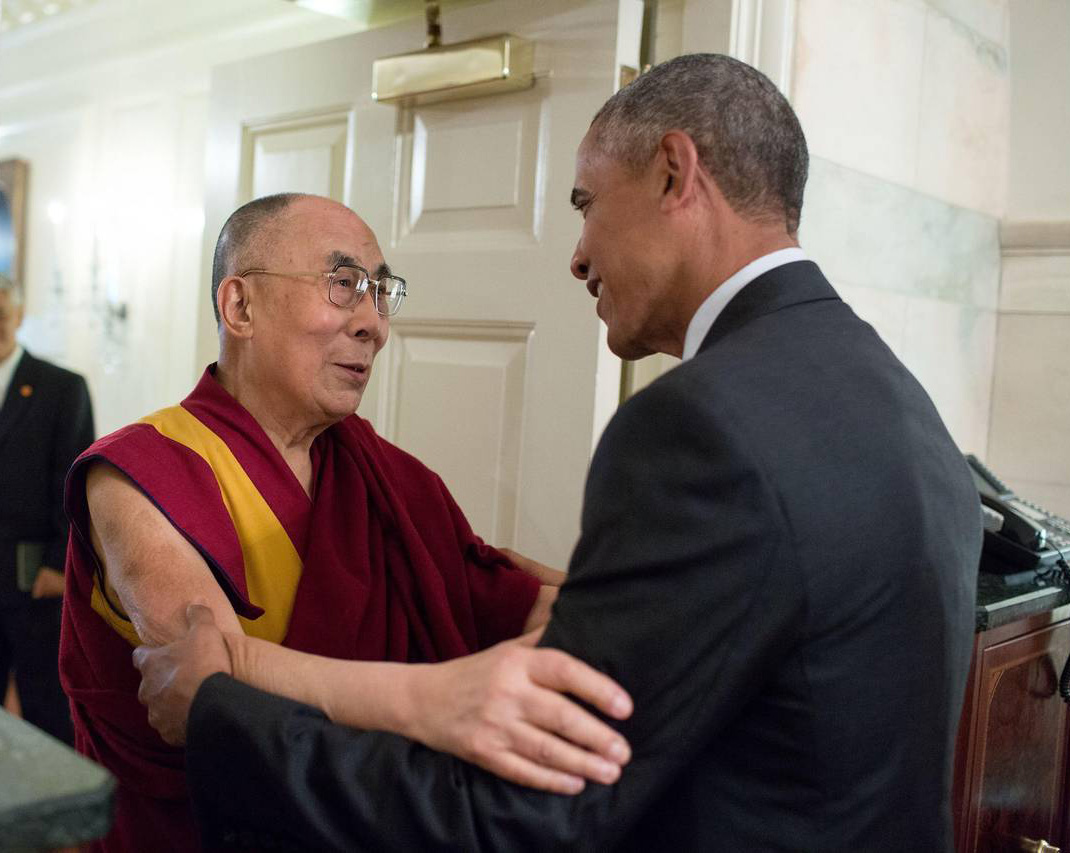Defying China and deepening his ties of friendship with His Holiness the Dalai Lama, United States President Barack Obama welcomed the revered spiritual leader to the White House yesterday.
Despite repeated threats from the superpower, the two men have met four times, publicly declare themselves friends and grasped each other affectionately on their latest reunion.
The meeting was deliberately closed-door, demonstrating to the world its personal nature, and conversation turned first to the Orlando terrorist attack – the worst mass shooting in American history.
The president thanked the Dalai Lama for his condolences. The previous day he had led a minute of silent prayer for the victims of the attack during an appearance at the US Institute of Peace in Washington.
Obama continued by praising the spiritual leader for his continuous efforts in endorsing compassion, empathy, and respect for others. The Tibet issue was also touched upon, and while the US president made it clear that his country’s official stand remains unaltered – America does not recognise Tibet as its own country – he emphasised the need to preserve its unique religious, cultural, and linguistic traditions.
He also expressed hope that the continuation of the middle way policy would enable talks between the Dalai Lama and Chinese authorities to recommence. For the past six years attempts to make contact have proved futile, the indignant response from China over this recent meeting demonstrating their continued mistrust of His Holiness.
“If such meeting goes through, it will send a wrong signal to the separatist forces seeking Tibet independence and it will damage mutual trust and cooperation,” China’s foreign ministry spokesman, Lu Kang told reporters before it took place.
His Holiness’ reunion with Obama was one of pleasure on a tight-schedule of official engagements in the American capital. While there, he attended a conference with the Senate Foreign Relations Committee discussing, amongst other things, the environmental decline of the Tibetan Plateau and his continued desire for autonomy from China, not independence.
Carl Gershman, president of the National Endowment for Democracy then welcomed His Holiness to lunch with 30 other guests.
Next on the programme was a discussion on the theme “Democracy and Hope” with four young activists, Arzu Geybullayeva, a journalist from Azerbaijan, Rosa Maria Payá from Cuba, Azaz Elshami, a Sudanese digital activist and Rami Soud, a Jordanian Activist.
Azaz Elshami posed the first question, asking the Dalai Lama what spirituality meant to him. He replied that at its core is warm-heartedness, pointing out that the message of all major religious traditions is love. He added that the seed of spirituality exists in every human being and that compassion and warm-heartedness are the basis of our life.
His Holiness also met with members of the International Campaign for Tibet (ICT) at the American University, an organisation which works to promote human rights and democratic freedom in the country. His departure from the stage was met with cheers and chants of “long-live the Dalai Lama,” and so his tour of the US continues. Next stop: California.





 Print
Print Email
Email